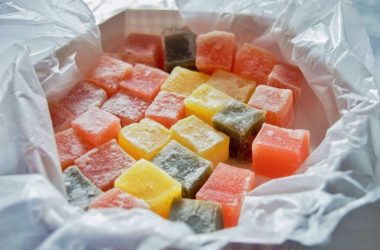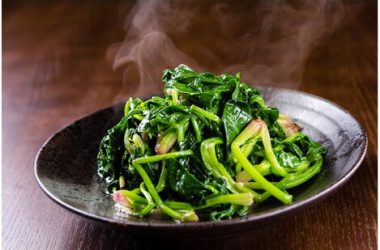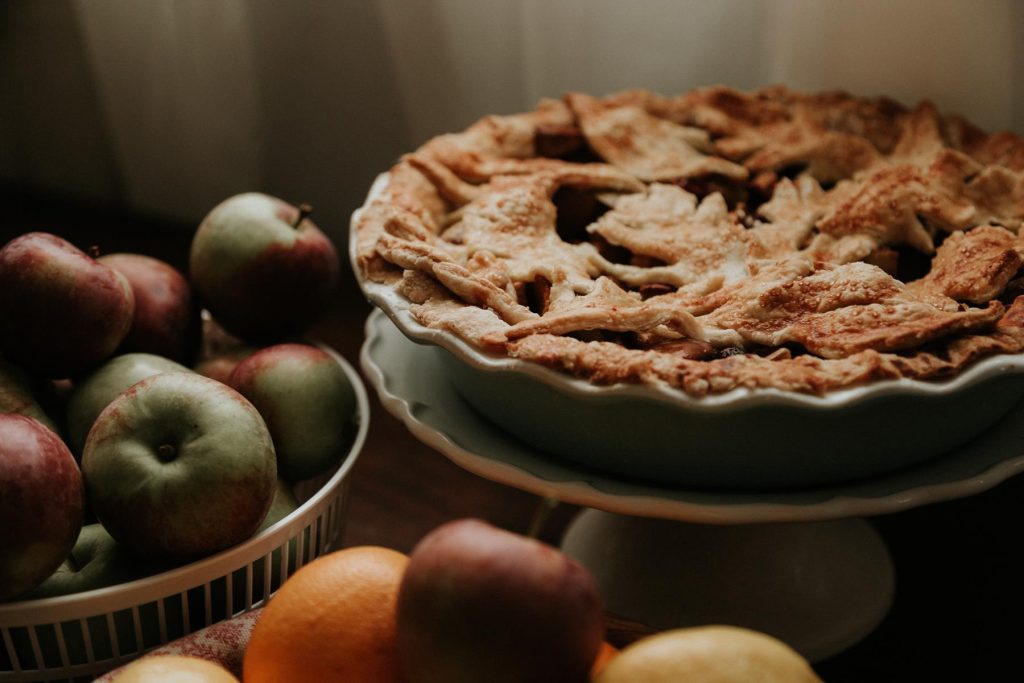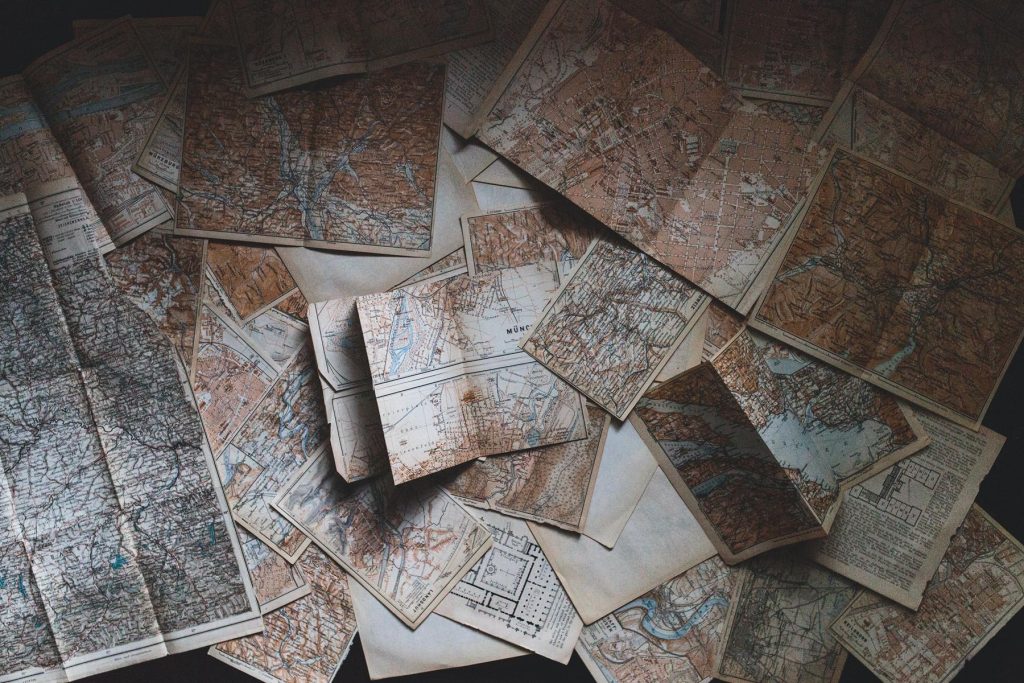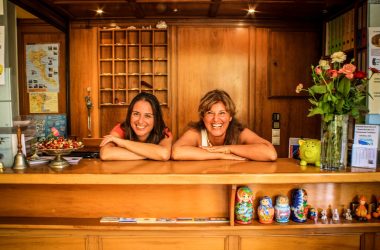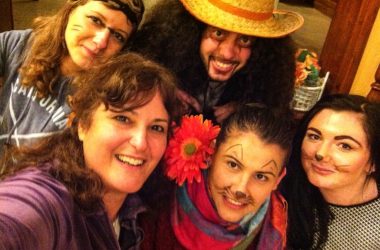
The first things I noticed arriving in Benitses were the amazing colours of the sea and of the beautiful flowers blossoming everywhere. I’d never seen a rainbow of colours like that before. Even the houses were painted in warm shades, like brick red or the honey yellow that reminds of the sand in Glyfada Beach. But there was another thing I noticed: two huge spoiled buildings along the main road outside the old village’s centre. I first thought that maybe they were undergoing renovations and would open again in the summer, but peering through the dusty windows of those big structures so different from the small tavernas and cafés that run along the seafront, I realized that I was guessing wrong. Both buildings were abandoned, as they looked. The rotting gaming machines made it clear that they were not skeletons of hotels. No, they must have been clubs or casinos.
One night, on a walk with Anthea, going past one of the buildings, she decided to confine me the story of Benitses and of the abandoned remains of what once used to be…discos.
” The small village of Benitses has always been a wealthy and privileged place to live, firstly because it was rich with the waters coming from the nearby mountains. Testimony of this are the old remains of the Roman baths and the beautiful water-springs tourists love to visit when they come here. The second reason that made Benitses a lucky place was that, being next to the sea, it was born as a fisher village. Whereas in the centre and in the mountains people could only live on agriculture, and we all know how easily bad weather as well as plant diseases can damage the produce, in Benitses people were never hungry, because they always had fish, all year long. And of course the fish was a source of income, because they villagers could sell it to the nearby villages.

Starting from the 60’s, Corfu island gained an additional source of income: tourism. This brought to a huge immigration in those years, because, thanks to tourists, people could earn enough money to live here all year. Anthea’s parents, for instance, came back to their motherland from Australia in 1966. Thanks again to the availability of fresh fish, Benitses was once more the lucky place, developing very fast and becoming soon a very popular holiday destination.
Tourists loved Benitses, because it had all the characteristics of an idyllic society, innocent and unaffected by the capitalistic mentality that was rapidly spreading throughout Europe. It was a happy paradise immersed in tranquility, simplicity and purity.
Villagers, in turn, loved the tourists, because they were bringing richness and modernity. Locals thought of the tourists as angels coming from heaven. With their blue eyes and blond hair, the typical traits of the British, they represented the image of beauty and progress. Thanks to these “angels”, locals started having more money, which enabled them to purchase new land on which they would build restaurants, hotels, shops… Everybody started to live their own dream, even those who didn’t have land could make a living by selling local products like fish, olive oil and wine to hotels and restaurants.

Unfortunately, the dream turned soon into a nightmare. The type of tourism that was establishing a foothold was mainly young tourism. The travel agency operating in Benitses was the British Club 18 30, it’s easy to understand that the age range of tourists was very low, from 18 to 30, and that it was influencing the type of services the village had to offer. Clubs and pubs started to mushroom along the seafront. However, this type of tourism started to change not only the architecture of Benitses, but also the mentality of the people, erasing the values on which the traditional, patriarchal and strongly religious society was built.

The people who had more land and more money started to show off, making the poorer villagers feeling envious and frustrated, breaking the coherence and friendship between the people living in this place. The free lifestyle that the tourists were exporting collided with the religious beliefs on which the harmony of the family was based. Considering tourists as higher human beings, locals started disrespecting the traditional values of humility, chastity and abstinence that characterized the lifestyle in Benitses. What was once innocence and naivety turned into ignorance, and the combination of ignorance with the possession of much money, resulted in a grotesque imitation of the tourists’ lifestyle.
Men started going to parties, drinking without restrain and enjoying the sexual freedom of the beautiful foreign women. Local girls were completely disregarded, firstly because they were following the outdated religious code of behaviour. In other words, they were not selling cheap. Secondly, because they couldn’t fulfill men’s dream to leave Greece and move elsewhere for better. Those who didn’t succeed to find a beautiful foreigner in the summer, were going on holidays abroad in the winter in chase of their dreams.
Benitses was advertised for the three S: sea, sun and sand. If you come to Benitses, however, you’ll see that we have no such thing as sandy beaches here. There is no need for me to tell you what the third S was, you can easily understand it.
At the beginning of the 80’s the price of land increased substantially, and so did the competitiveness between the locals. Everybody was fighting in order to buy the biggest portion of land and to build the most successful business. And after achieving to build a successful business, the clubs were fighting for who could have the louder music, and since at that times there was no law regulating this aspect, Benitses was basically transformed into a big disco. In order to save money, the clubs were buying cheap alcohol and offering people bad drinks , so that they had to buy more and more in order to reach the level of drunkenness they needed in order to enjoy the disgusting sex shows that were held in these clubs.
While the local families were calling the police to complain about the noise, the drunk tourists were fighting with the local boys for some girl they just met in one of the clubs. At that times the local boys used to go out with iron belts with the excuse that “you never know what might happen”. In the morning locals may find the heads of their donkey’s cut off, or some drunk person collapsed on the sidewalk.

One morning Anthea’s brother found a local boy sleeping in their garden. He tried to wake him up, but only managed to do so by spreading cold water on the guy’s head. Thank god he wasn’t in a coma. He brought the guy in their house to give him time to recover a bit, but he was still drunk and shouting for hours the same pathetic words “Jane, I love you! Don’t go!”. This situation continued for five hours, before they decided that it was time to send the guy back home.
Noise, stabbings, the police’s continuous interventions…the heavenly and peaceful village of Benitses was now a burning and unsafe hell.
Families were more and more concerned about their children, who were going wild, drinking themselves stupid and coming back home destroyed by some fight. While many boys were dropping out of school and leaving their families to go abroad, where they were spending all their money in casinos, the girls grew up thinking that they were worth nothing, since the local boys had eyes only for the beautiful tourists.
When the agency, tired of investing money in a place which was no longer a safe and profitable tourist attraction, because of the local families started contesting this kind of tourism, decided to move to Kavos, in the south of Corfu island, the possessors of the clubs fell from grace, like kings falling from their thrones. What stayed, however, were broken families and children split between Greece and their mother’s country.
“Do you understand now why I decided to leave and to go abroad to study? I wanted to see what was so special about England, what the people and the women there have that we don’t have. Getting an education was the only chance I had to leave this place where nothing made sense anymore. My own brother was climbing out of the window to go to these clubs, but me…I wasn’t allowed to do anything, because I am a woman! The only thing I would be allowed to do was getting married, obviously with a Greek man. This is the way my sister chose in order to have some freedom. But I didn’t want to get married at fifteen! So I left to make myself a place in the world, a place that I couldn’t have here.
My brother was to be the future owner of my parent’s hotel, there was nothing for me here. But my brother refused to run the hotel. So, I came back, because I believed that there is another way this village can go, the way of responsible and sustainable tourism. I came back and worked hard to make this new way come true, and I made it, thanks to the knowledge and experience I gained abroad.
I came back, because I hate and I love this place.””

To you readers, now you know why Benitses was deserted when Anthea moved back from London: the tourism had moved elsewhere. However, this emptiness was a blessing, because Benitses could build itself again on its ruins, revealing all its true and pure beauty.

